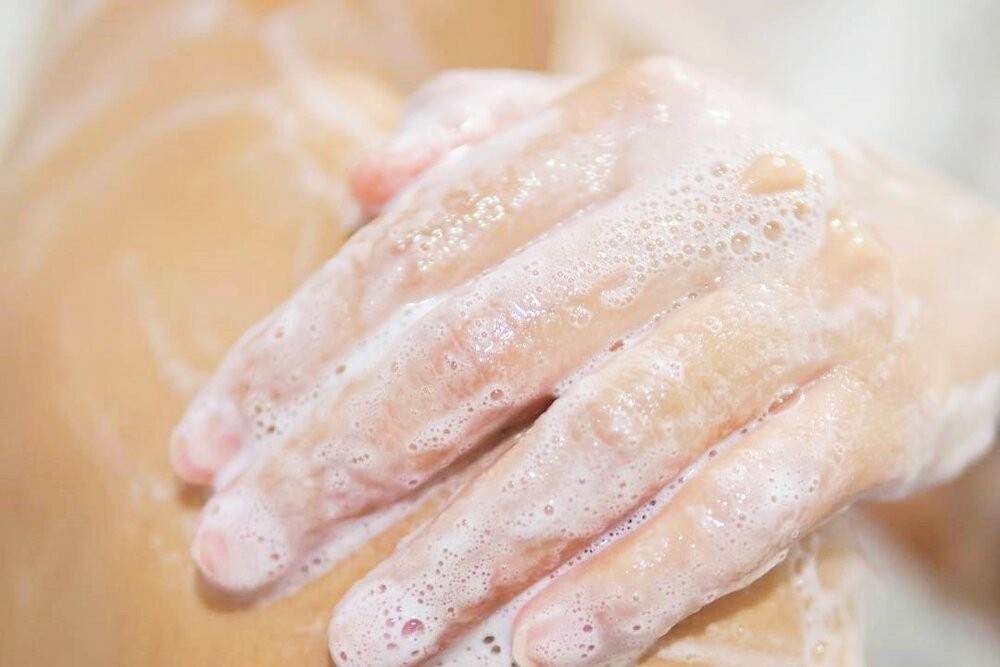
Soap removes sweat and dirt from the body, leaving it fresh and clean. But your body may not like the type of soap you are using.
Some traditional or ordinary soaps can be too harsh. These soaps will cleanse your skin but cause dryness or irritation.
In this case, mild soap may be a better option. This soap is made up of gentle ingredients that leave your skin not only fresh and hydrated but also healthier.
What is mild soap?
A lot of people think that all soaps are created equal, but there is an important distinction between mild soap and traditional soap. The difference has everything to do with the ingredients that make up these soaps.
Most soaps available in stores are not “true” soaps. True soap is a combination of natural fats and an alkali (lye). Lye is also referred to as sodium hydroxide, which is a chemical that originates from salt.
Nowadays, however, many traditional or ordinary soaps do not contain natural fat or lye. They are actually synthetic detergents or cleansers. They can contain fragrance, sodium lauryl sulphate and other ingredients that are harsh on the skin. These soaps can throw off the pH balance (acidity level) of your skin, which can cause further irritation.
The average pH level in traditional soap ranges from 9 to 10. However, your skin’s average pH range is just 4 to 5.
Soaps with high pH can disrupt the skin’s natural pH and make the skin less acidic. This can lead to acne, dry skin and other issues.
Mild soap, On the other hand, does not affect the skin’s pH.
Mild Soap Ingredients – Mild soap is made from ingredients that are chosen for their mild cleansing properties. Common ingredients used in mild soap are:
- Glycerin: It is a natural humectant that helps to moisturize the skin.
- Aloe vera: It is a soothing ingredient that helps to calm irritation and inflammation.
- Chamomile: An anti-inflammatory herb that can help to reduce redness and soothe the skin.
- Coconut oil: A moisturizing ingredient that can help in keeping the skin soft and supple.
- Olive oil: A nutritious ingredient that can help restore your skin’s natural oils.
- Shea butter: A rich and emollient ingredient that can help to soothe and soften the skin.
Benefits of mild soap
A mild soap can bring many benefits to the skin. A few of these benefits are:
- Gentle cleansing: Mild soap is not likely to strip off the skin’s natural oils, which can help to maintain the skin’s moisture balance. This can result in more youthful, healthier-looking skin and reduce the signs of skin conditions such as psoriasis and eczema.
- Reduced irritation: Mild soap is less likely to contain strong chemicals and fragrances that can irritate the skin, making it an ideal option for those with sensitive skin.
- Improved hydration: Mild soaps contain ingredients that help to moisten and hydrate the skin, like aloe vera and glycerin.
- Reduced risk of allergic reactions: Mild soap is less likely to contain ingredients that can cause allergic reactions, such as artificial fragrances or dyes.
Drawbacks of Mild Soap
Although mild soap can provide many benefits, there are some possible drawbacks to consider. These include:
- Less effective cleansing: A mild soap may be less effective at removing dirt and grime than regular soap, which can make it less suitable for heavy-duty cleaning.
- Lower lather: Mild soap may not lather as much as ordinary soap, making it less satisfying for some people.
- Limited fragrance options: Mild soap is less likely to contain fragrances which can limit the choices for those who like scented products.
Uses for mild soap
Mild soap may help treat the following conditions-
1. Acne
Acne includes whiteheads, blackheads and various bumps that appear when dead skin and dirt clog pores.
Acne can be treated with over-the-counter and prescription medications. In addition, some individuals notice improvements in their skin after using gentle products, such as mild soap or acne soap.
These cleansers don’t contain harmful ingredients such as fragrance and alcohol, so they can effectively cleanse your skin without causing or aggravating acne.
2. Sensitive skin
Sensitive skin can include eczema, rosacea, psoriasis, and other skin conditions that can irritate the skin’s top layer.
There is no cure for some conditions that lead to sensitive skin, but good skin care can reduce the severity of dryness, redness and itching.
Mild soap can have a soothing effect on the skin, which reduces irritation. It can also act as a natural moisturizer, keeping your skin healthy and hydrated.
3. Itchy skin
Itchy skin may be caused by conditions like eczema, psoriasis, and dryness. Excessive makeup removers, cleansers, toners, and moisturizers can cause further dryness and prolong itchiness.
Switching to a mild soap can help to reduce dryness, leaving your skin soft and hydrated.
4. Skin redness
Even if you don’t have any skin condition, you may develop skin redness after using traditional soaps or cleansers. It can happen because a product you use is too harsh for your skin, or it’s because you’re allergic to an ingredient that is present in a product.
Switching to mild soap may help reduce skin irritation and redness.
Side effects and precautions
While mild soap is gentle and designed for sensitive skin, some people are sensitive to the ingredients in some of these soaps.
If you are using mild soap and continue to experience skin irritation, stop using it and consult a physician or dermatologist. Signs of irritation include dryness, redness, itchiness and skin peeling.
You can get better results with a hypoallergenic soap. This can remove excess dirt without irritation.
The doctor may also refer you to an allergist who can determine if you’re allergic to a particular ingredient in mild soap.
Where to buy mild soap?
Mild soaps are readily available in drug stores, grocery stores, and other retailers.
When shopping for soap, be sure to look for fragrance and alcohol-free products. Also, look for soaps designed specifically for those with sensitive or allergic skin.
Takeaway
Whether you have sensitive skin or looking for a soap that doesn’t strip your skin’s natural oils and nutrients, a mild soap can help your skin’s natural pH balance. From hand washing to makeup removal, the various uses of soap get more effective with the gentle cleansing properties of mild soaps. This makes them a great option for people with sensitive skin.
If you’re considering using mild soap, it’s essential to select a top-quality product specifically designed for your skin type. Choose a soap with nutritious ingredients like aloe vera, glycerin or shea butter and avoid soaps that contain harsh chemicals or fragrances that can irritate your skin. You can also use a moisturizer after washing your skin with mild soap to lock in moisture and keep your skin soft and supple.
Overall, mild soap can be an excellent choice for those looking for a gentle, effective, nourishing way to keep their skin clean and healthy. Choosing a top-quality soap and using it regularly can help maintain your skin’s natural balance and avoid dryness or irritation. So why not give mild soap a try and see how it can benefit your skin?












